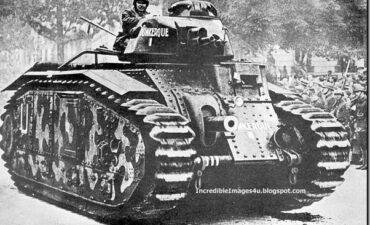What can we learn from Harry S. Truman and Lyndon B. Johnson? Harry S. Truman and Lyndon B. Johnson were two influential U.S. Presidents, and their leadership styles and decisions offer several lessons in leadership, governance, and policy-making. Here are some key takeaways from their presidencies:
Harry S. Truman (1945–1953)
Decisive Leadership:
Truman is known for making tough decisions, such as authorizing the use of atomic bombs on Hiroshima and Nagasaki, which hastened the end of World War II. His willingness to make difficult choices, even in the face of uncertainty and opposition, is a hallmark of strong leadership.
Integrity and Honesty:
Truman valued honesty and transparency. His straightforward communication style helped him maintain public trust, even during challenging times. His motto, “The buck stops here,” reflected his belief in taking responsibility for his actions and decisions.
Civil Rights:
Truman took significant steps toward advancing civil rights, including desegregating the armed forces in 1948. He understood the importance of equality and justice, setting a precedent for future civil rights advancements.
Containment Policy:
Truman played a key role in the early Cold War period, establishing the policy of containment to prevent the spread of communism. His leadership in the Marshall Plan, which provided economic aid to rebuild Europe after WWII, and the establishment of NATO were crucial in shaping the post-war world order.
Lyndon B. Johnson (1963–1969)
Visionary Domestic Policy:
Johnson is best known for his “Great Society” program, which aimed to eliminate poverty and racial injustice. He launched major initiatives such as Medicare, Medicaid, the Civil Rights Act of 1964, and the Voting Rights Act of 1965. His vision for a more equitable society led to significant social reforms.
Political Skill and Persuasion:
Johnson was a master of legislative strategy, often using his persuasive skills and deep understanding of Congress to pass key legislation. His ability to build coalitions and work across the aisle was instrumental in enacting his ambitious agenda.
Commitment to Civil Rights:
Johnson’s commitment to civil rights and social justice was evident in his leadership in passing landmark civil rights legislation. He understood the importance of government intervention in ensuring equal rights for all citizens.
Challenges of the Vietnam War:
Johnson’s presidency was marred by the Vietnam War, which became increasingly unpopular and overshadowed his domestic achievements. His handling of the war offers lessons in the complexities of foreign policy and the impact of military interventions.
Common Lessons from Both Presidents:
Navigating Crises:
Both Truman and Johnson faced significant crises—Truman with the early Cold War tensions and Johnson with the Vietnam War. Their presidencies highlight the challenges of decision-making during crises and the importance of clear communication with the public.
Balancing Domestic and Foreign Policy:
Both presidents had to balance significant domestic agendas with pressing foreign policy issues. Their experiences illustrate the need for prioritizing and managing multiple complex issues simultaneously.
Legacy and Public Perception:
The legacies of both presidents were shaped by both their successes and their controversies. Truman’s tough decisions and Johnson’s civil rights achievements are celebrated, while both also faced criticism for other aspects of their presidencies. This underscores the complexity of presidential legacies and the long-term impact of their decisions.
Truman and Johnson’s presidencies offer valuable insights into leadership, decision-making, and the challenges of governing a diverse and dynamic nation.








